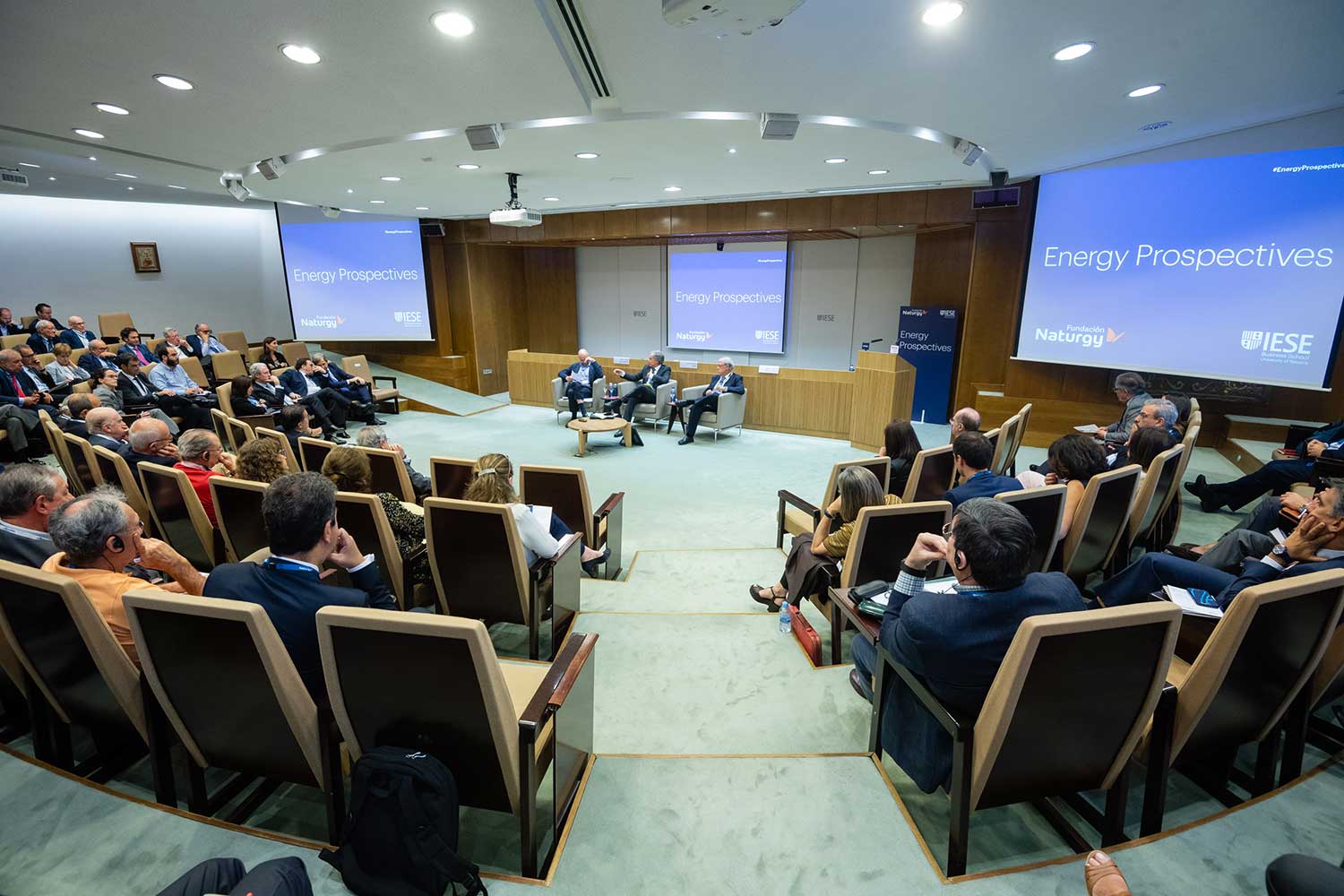Christopher Jones: “To comply with the Paris Agreement, the European Union will have to be practically free of carbon emissions by 2050.”
The driver of the European Union’s “20-20-20” programme stated that renewable energies are an opportunity to achieve competitive prices, create employment and make technology available
The expert in the power market and founder of the Technology Research Institute at the Comillas Pontifical University, Ignacio Pérez Arriaga, also took part in the event and highlighted the importance of distributed resources in the energy market of the future.

“To achieve the objectives of the Paris Agreement in the European Union, all sectors (electricity, transport, buildings and industry) will have to be totally or almost totally carbon-free by 2050.” This is the clear vision of the future provided by the driver of the EU's “20-20-20” programme, Christopher Jones, in Madrid today at the second edition of the high-level ‘Energy Prospectives’ talks organised by the Naturgy Foundation and the IESE Business School.
Jones noted that, now, each EU Member State sets their own objective and the European Commission may offer recommendations. “The Commission tells us that Europe will reach 32% of renewable energy in the main economies (Austria, Germany and France), but Denmark and Spain are further above the target as they are very ambitious.”
The European expert explained that, with regard to renewables, Spain has set a target of 42%, and an improvement of 39.6% for energy efficiency. Jones said: “It is very difficult to achieve renewable energy for transport and buildings,” and electricity will be largely responsible for reaching these objectives. That is why he wondered “how Spain is going to change its economy in such a short period of time to have jobs and technology for this energy transition. They need a plan.”
The academic referred to the actions he considers a priority for the next European Commission to implement. One of them is a regulatory framework to decarbonise the energy markets after 2030 and the solution includes a long-term energy policy with a high level of electrification. “In order to achieve decarbonisation, it is important for the EU to comply with the sustainability triangle, security of supply and competition.”
To that end, Jones believes that the energy model of the future will be a hybrid of electricity with renewables and decarbonised gas, which includes biomethane, green hydrogen and renewable gas. This model will be cheaper than one that is solely based on electrification, according to the expert.
Share